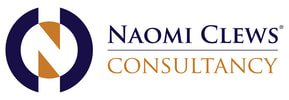Read on to find out how procurement can play its part in making supply chains more transparent and ridding them of modern slavery. Every day, victims of modern slavery are stripped of their freedom and exploited for profit. The Home Office estimates there are between 10,000 and 13,000 potential victims of human trafficking in Britain, with 45 million worldwide. The Modern Slavery Act 2015, was introduced to tackle this growing problem and Prime Minister Theresa May, pledged to end modern slavery calling it the “great human rights issue of our time”. Section 54 of the Modern Slavery Act is of great importance to procurement as it relates to transparency in supply chains. The impact of purchasing practices such as buying at the lowest cost or short timescales for contracts and the role of consumers, civil society and investors and how companies can be effectively encouraged to do more are highlighted in the new report. The Independent Anti-Slavery Commissioner (IASC) UK-wide remit is to encourage good practice in the prevention, detection, investigation and prosecution of modern slavery offences and the identification of victims. Their 2016-17 annual report listed their priorities, one of which is engaging the private sector to promote policies to ensure that supply chains are free from slavery and to encourage effectual transparency reporting. This priority is important as the Modern Slavery Act 2015, Section 54 Transparency in Supply Chain Provisions, require businesses with an annual turnover greater than £36m to publish an annual modern slavery statement. There are no legally binding requirements to conduct due diligence on supply chains and there are no criminal or financial penalties for non-compliance. The 2017-2018 UK annual report on Modern Slavery is now available to read. The report highlights new forms of exploitation, such as children being forced to commit crimes for gangs and the recruitment of vulnerable rough sleepers. The Government has commissioned an independent review of the Modern Slavery Act 2015 to identify where the Act is working well and whether specific areas of the Act need to be strengthened. The Review will report in March 2019, and its recommendations will help steer the Government’s future response. The Government is also in the process of appointing a new Independent Anti-Slavery Commissioner, following the departure of Kevin Hyland OBE. A letter to all UK businesses reiterating the action required on their parts to report under the Modern Slavery Act 2015 was issued by government. This, coupled with the creation of the ‘Tackling Modern Slavery in Supply Chains’ thematic group, will drive forward work to hold businesses to account on tackling forced labour in their supply chains by conducting research into: • The patterns of forced labour – within businesses and across supply chains, • The most effective interventions in tackling forced labour in global supply chains and in the UK, • Factors that influence businesses to act on and disclose modern slavery risks. As well as understanding more about the organisations that use forced labour (including their size, revenue flow and position within the supply chain) the government requires more empirical studies, which systematically map the scale, nature and, drivers of forced labour in specific product or labour supply chains and looks at high-risk labour-intensive sectors, often characterised by high levels of sub-contracting, use of seasonal employment and use of low-skilled labour. The effectiveness of interventions including social auditing, certification schemes, multi-stakeholder initiatives, ‘worker voice’ and reporting mechanisms and initiatives to prevent worker-paid recruitment fees are also under review. Transparency in Supply Chains Open Register Despite calls for a central repository by many Parliamentarians and businesses (to increase transparency and make it easier for consumers and others to view the modern slavery statements), it is extremely disappointing to learn that the government has allowed multiple central repositories for the modern slavery statements to exist. The Transparency in Supply Chains (TISC) open data register was created to meet the requirements of Section 54 of the Modern Slavery Act 2015. On the 14th November 2017, the website stated there were 19,373 UK organisations that Section 54 was applicable to, roughly 30% of UK organisations 5,772 (with a turnover greater than £36m) had published a Modern Slavery statement, on the register. On the 25th October 2018 the website states Section 54 is applicable to 18,721 UK organisations (4% decline), roughly 55% of UK organisations (10,440) have published a Modern Slavery statement, a 25% increase on last year. The Gov.UK website provides a useful search function to view a full list of suppliers Modern Slavery statements. Section 54 Transparency in Supply Chains Statement Requirements The UK government published a guide on creating a modern slavery statement called transparency in supply chains, a practical guide: guidance for business. The legislation relating to the requirements of the statement are as follows: A slavery and human trafficking statement for a financial year is: a) a statement of the steps the organisation has taken during the financial year to ensure that slavery and human trafficking is not taking place; (i) in any of its supply chains, and (ii) in any part of its own business, or (b) a statement that the organisation has taken no such steps. An organisation’s slavery and human trafficking statement may include information about; (a) the organisation’s structure, it's business and it's supply chains, (b) it's policies in relation to slavery and human trafficking, (c) it's due diligence processes in relation to slavery and human trafficking in its business and supply chains, (d) the parts of it's business and supply chains where there is a risk of slavery and human trafficking taking place, and the steps it has taken to assess and manage that risk, (e) its effectiveness in ensuring that slavery and human trafficking is not taking place in its business or supply chains, measured against such performance indicators as it considers appropriate, (f) the training about slavery and human trafficking available to its staff. A slavery and human trafficking statement: (a) if the organisation is a body corporate other than a limited liability partnership, must be approved by the board of directors (or equivalent management body) and signed by a director (or equivalent), (b) if the organisation is a limited liability partnership, must be approved by the members and signed by a designated member, (c) if the organisation is a limited partnership registered under the Limited Partnerships Act 1907, must be signed by a general partner, (d) if the organisation is any other kind of partnership, must be signed by a partner. If the organisation has a website, it must: (a) publish the slavery and human trafficking statement on that website, and (b) include a link to the slavery and human trafficking statement in a prominent place on that website’s homepage. If the organisation does not have a website, it must: Provide a copy of the slavery and human trafficking statement to anyone who makes a written request for one, and must do so before the end of the period of 30 days beginning with the day on which the request is received. Small Medium Enterprises (SME) The Chartered Institute of Procurement and Supply (CIPs) undertook modern slavery research and reported that SME’s were overwhelmingly unaware of the Modern Slavery Act’s impact on them. CIPs recommend small businesses take the following simple but effective steps to protect their business:
Public Procurement Requirements Within Public Procurement, compliance with the Modern Slavery Act is a mandatory requirement for access to government contracts, it forms part of the Selection Questionnaire (SQ). Bidders are asked if they are a relevant commercial organisation as defined by section 54 ("Transparency in supply chains etc.") of the Modern Slavery Act 2015 ("the Act")? If they answer yes, they are then asked if they are compliant with the annual reporting requirements contained within Section 54 of the Act 2015?Contracting Authorities are then obliged to ask for the evidence upon award of a contract to a supplier. In summary: Businesses with a turnover that exceeds £36m per annum must comply with the requirements of Section 54 of the Modern Slavery Act. Public sector authorities use the Selection Questionnaire to test mandatory compliance to the Modern Slavery Act, when procuring on behalf to government. Procurement professionals have a responsibility to be aware of the requirements of Section 54 of the Modern Slavery Act. We all have a responsibility to report modern slavery - 0800 0121 700
|
| Naomi Clews, management consultant and owner of boutique procurement advisory firm Naomi Clews Consultancy Limited has 18 years public procurement process knowledge, experience and skills. Find out more here. |
Leave a Reply.
Naomi Clews Consultancy
Procurement, Tendering, Business Skills
Archives
December 2023
November 2023
October 2023
September 2023
August 2023
July 2023
June 2023
May 2023
April 2023
March 2023
February 2023
January 2023
November 2022
July 2022
June 2022
May 2022
April 2022
March 2022
June 2021
March 2021
April 2020
November 2019
October 2019
June 2019
April 2019
September 2018
March 2018
February 2018
Categories
All
2021
5 Rights
Acronyms
Anxiety
Burn Out
Business
Buying Power
Career
Communication Skills
Contract Finder
CONTRACT MANAGEMENT
Council
Data Protection
Debarment
Decision Making
Dog Friendly
E-procurement
ETHICS
Expert
Finance
Freelancer
FVRA
GDPR
International Recruitment
Leadership
Lichfield
Lichfield Business
Management
Mental Health
MODERN SLAVERY
Naomi Clews
Negotiation
Net Zero
NHS
NHS Procurement
NHS Recruitment
Organisational Skills
Personal Development
PESTLE
PPE
PPQ
Process Design
Procurement
Procurement Bill
Procurement Process
Procurement Training
Productivity
Public Procurement
Recession
RFI
RFP
SCM
Selection Questionnaire
SME
SME Procurement
SQ
SQ Tender
Staffordshire
STRATEGY
Stress
Supply Chain
Supply Chain Management
SWOT
Tech
Tender Debrief
Time Management
UK
Visit Lichfield
West Midlands
Work



 RSS Feed
RSS Feed
